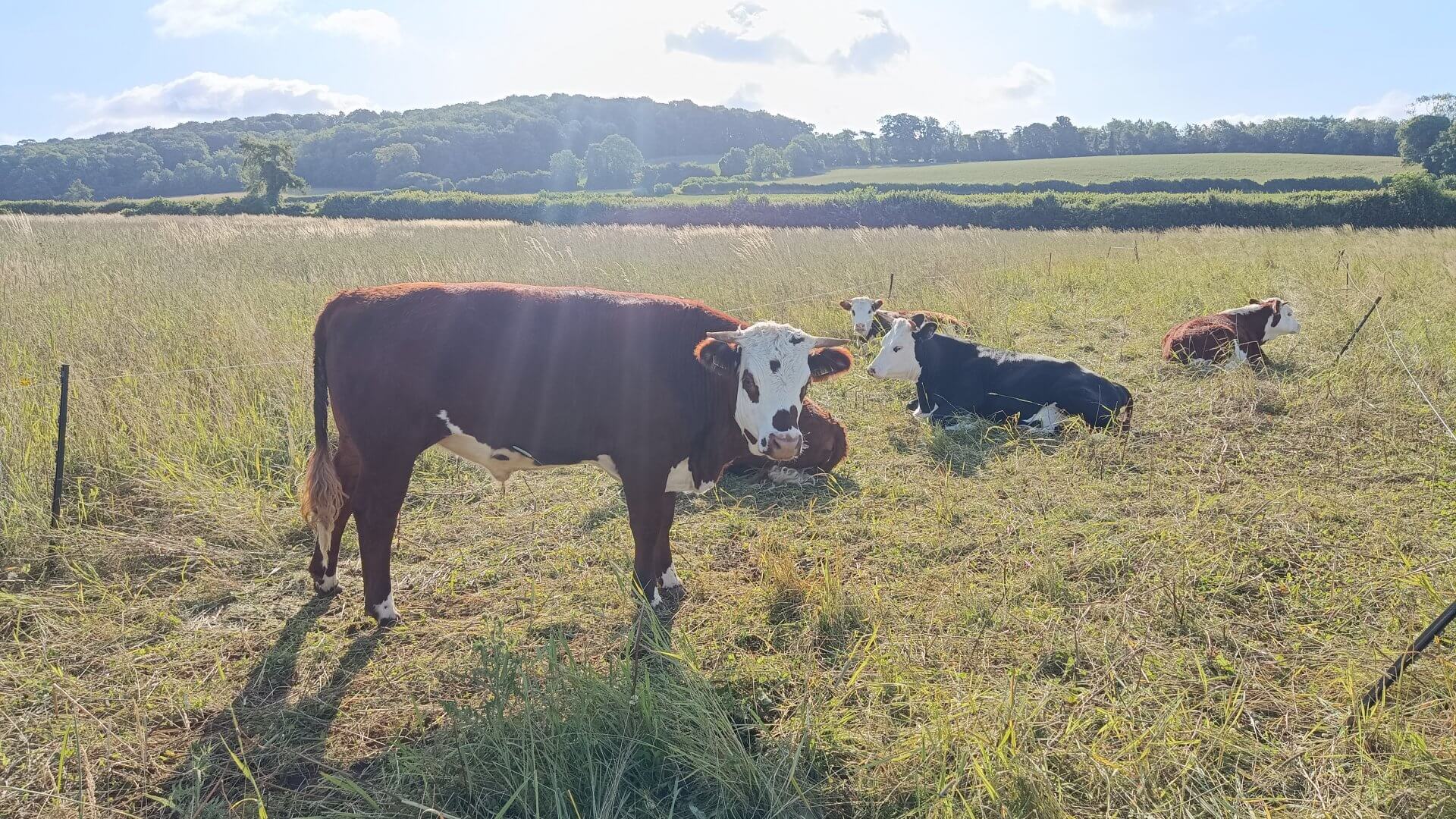
Here at Good Small Farms, we are committed to creating a positive impact on the environment, this is why we have chosen to graze cows across our pastures using a technique that goes by many names: mob grazing; high density grazing; rotational grazing. Read on to find out more…
Our grazing method mimics the behaviour of a wild herd out on the great planes – constantly on the move chasing rain/forage and with safety in numbers away from predators. Our cows are therefore kept in high density which has many beneficial impacts on the land (even grazing and fertilising) and are moved regularly (often multiple times a day) to enhance these impacts further – e.g. short grazing periods mean longer rest periods for the pastures.
The animals move on to fresh grass before the pasture is overgrazed – the aim is to leave enough of the plant behind so as to avoid damaging the roots and ensure a quicker recovery. This also helps provide protection to the soil and reduce erosion.
This pasture is then rested for an adequate amount of time (depending on the season) and many of our pastures reach full maturity and go to seed. This feeds not only the pollinators above the ground but also the microbiology below it. A living soil makes for a fertile soil and a bi-product of this (via growth and decay) is the storage of carbon underground.
Our cows are 100% ‘grass fed’; where ‘grass’ is in actual fact the multitude of species of grasses, shrubs and forbs that are found in our fields as well as the delicious leaves of bushes and trees from our hedgerows. We are supporters of the ‘Pasture for Life’ certification, soon all of our cows will be 100% Pasture for Life.
Find us on Instagram for photos and videos of our herd and grazing practices.
Our first nutrient-dense Beef Boxes will be available from October. Click here to email Matt if you’d like to be the first to hear or to find out more.


